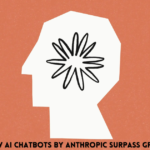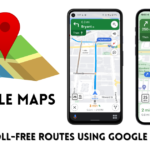Welcome to our article on managing AI in well-being. As advances in technology continue, artificial intelligence (AI) is becoming increasingly prevalent in our daily lives. From personalized recommendations to data analysis, AI has the potential to greatly enhance our well-being. However, it’s essential to understand how to effectively manage AI to maximize its benefits. In this article, we will explore strategies and tips for integrating AI into your well-being routine while ensuring privacy and ethical considerations. Let’s dive in!
Key Takeaways:
- Discover strategies for effectively managing AI in well-being.
- Understand how AI can enhance your well-being experience.
- Learn how to choose the right AI tools and apps for your needs.
- Explore the challenges that may arise and how to overcome them.
- Gain insights into the future trends and possibilities of AI in well-being.
Benefits of AI in Well-Being
Artificial Intelligence (AI) has the potential to revolutionize the way we approach well-being. By leveraging advanced algorithms and data analysis, AI can provide personalized recommendations, streamline processes, and enhance our overall well-being experience. Let’s explore some of the key benefits that AI brings to the table:
1. Personalized Recommendations
One of the significant advantages of AI in well-being is its ability to deliver tailored recommendations based on individual needs and preferences. Whether it’s suggesting the most suitable workout routine, personalized meal plans, or customized mental health resources, AI can use data analysis to develop personalized strategies that resonate with each user.
2. Efficiency and Time-saving
AI-enabled tools and applications can automate various tasks, saving valuable time and energy. From smart devices that track fitness progress to AI-powered productivity apps that optimize schedules, AI can help streamline our daily well-being routines, allowing us to focus on what truly matters.
3. Data Analysis and Insights
AI excels at analyzing vast amounts of data to uncover valuable insights. By leveraging AI algorithms, healthcare professionals can diagnose and treat diseases more efficiently, while individuals can track and evaluate their personal well-being data, gaining a deeper understanding of their habits and progress.
The power of AI in well-being lies in its ability to analyze individual data and provide personalized strategies for improved health and happiness.” – Dr. Jane Adams
By integrating AI into our well-being routines, we can harness its benefits to optimize our physical and mental health, leading to a more fulfilling and balanced life.
Understanding AI in Well-Being
Artificial Intelligence (AI) is revolutionizing the world of well-being, bringing about new possibilities for enhanced health and happiness. By understanding the basics of AI and its application to well-being, we can unlock its full potential in improving our overall quality of life.
At its core, AI is the development of computer systems that can perform tasks that normally require human intelligence. In the context of well-being, AI technologies utilize machine learning algorithms and natural language processing to analyze data and make informed recommendations. This allows for personalized and data-driven approaches to achieving and maintaining optimal well-being.
“AI technologies analyze data and make informed recommendations, allowing for personalized and data-driven approaches to achieving and maintaining optimal well-being.”
AI-powered tools can analyze vast amounts of data and extract valuable insights, providing individuals with actionable recommendations tailored to their specific needs and goals. Whether it’s tracking physical activity, managing stress levels, or improving sleep quality, AI can assist in optimizing various aspects of well-being.
“AI technologies have the potential to transform traditional healthcare systems and significantly improve patient outcomes.”
Machine Learning Algorithms in AI
Machine learning algorithms are an integral part of AI in well-being. These algorithms allow AI systems to learn from data and improve their performance over time. By analyzing patterns and trends within the data, AI algorithms can make predictions and provide personalized recommendations.
For example, in the fitness industry, wearable devices equipped with AI technology can track users’ physical activities and provide real-time feedback. Over time, the AI algorithms learn the user’s exercise habits and can suggest more effective workouts or identify areas for improvement.
Natural Language Processing in AI
Natural Language Processing (NLP) is another crucial component of AI in well-being. NLP enables AI systems to understand and interpret human language, allowing for seamless communication and interactions.
One application of NLP in well-being is virtual assistants or chatbots that can provide support for mental health. These virtual agents can engage in empathetic conversations, offer coping strategies, and provide resources to individuals experiencing stress, anxiety, or other mental health challenges.
Applications of AI in Well-Being
| Applications | Examples |
|---|---|
| Personalized Recommendations | AI-powered fitness apps suggesting workouts based on individual goals |
| Data Analysis | AI algorithms analyzing sleep patterns to provide insights on improving sleep quality |
| Virtual Therapy | Chatbots providing mental health support and guiding individuals through therapeutic exercises |
| Medical Diagnostics | AI systems analyzing medical images to aid in early detection of diseases |
Understanding AI and its capabilities in well-being is crucial for harnessing its potential effectively. By leveraging machine learning algorithms and natural language processing, AI can provide personalized recommendations, insights, and support, ultimately enhancing our overall well-being.
Integrating AI into Daily Well-Being Routine
As AI continues to revolutionize various industries, it has also made its way into the realm of well-being. By seamlessly incorporating AI into your daily routine, you can gain valuable insights, track progress, and optimize your overall well-being. Here are some practical tips on how to integrate AI into your everyday life:
- Use Smart Devices: Take advantage of smart devices such as fitness trackers, smartwatches, and smart scales to monitor various aspects of your well-being. These devices can provide real-time data on your physical activity, sleep patterns, heart rate, and more. By leveraging AI algorithms, they can analyze this data and provide personalized recommendations to help you achieve your health goals.
- Explore Health Apps: There are numerous AI-powered health apps available that can assist you in managing your well-being. These apps can track your nutrition, offer workout suggestions, remind you to stay hydrated, and even meditate with you. Look for apps that have positive reviews and a user-friendly interface to ensure a seamless integration into your routine.
- Utilize AI Chatbots: AI chatbots are becoming increasingly popular in the world of well-being. These virtual assistants can provide you with immediate support and guidance regarding your health concerns. Whether you have questions about nutrition, exercise, or mental health, AI chatbots are there to assist you 24/7.
- Personalize Your Experience: AI technologies excel at personalization. Take advantage of this by customizing your AI-integrated well-being routine. Set specific goals, preferences, and reminders that align with your lifestyle. By tailoring the AI tools and apps to your individual needs, you can maximize their effectiveness and make them seamlessly fit into your daily routine.
- Track Your Progress: One of the most significant benefits of integrating AI into your well-being routine is the ability to track your progress. Use AI-powered tracking features to monitor your steps, calories burned, sleep quality, and other health metrics. Visualize your progress over time and use the data to make informed decisions regarding your well-being.
Incorporating AI into your daily well-being routine can streamline your efforts, provide valuable insights, and help you achieve your health goals more effectively. Embrace the power of AI and enjoy a more optimized and personalized well-being experience.
Choosing the Right AI Tools and Apps
When it comes to leveraging AI in your well-being journey, selecting the right tools and apps can make all the difference. With a wide variety of options available, it’s essential to choose those that align with your specific needs and goals. Whether you’re looking to improve your mental health, monitor your physical fitness, or enhance your overall well-being, the right AI tools and apps can provide valuable support and guidance.
Before diving into the world of AI, it’s essential to consider what you hope to achieve with these tools. Are you seeking personalized recommendations for stress management techniques or looking for AI-driven fitness apps to help you track your workouts? Understanding your objectives will help you narrow down the options and make an informed decision.
Table: Popular AI Tools and Apps for Well-being
| AI Tools and Apps | Key Features |
|---|---|
| Meditation apps | Guided meditation, mindfulness exercises, stress reduction techniques |
| Sleep tracking devices | Monitoring sleep patterns, analyzing sleep quality, providing personalized recommendations for better sleep |
| Wellness chatbots | 24/7 support, instant access to resources, AI-powered conversations for mental health support |
| AI-powered fitness apps | Customized workout plans, real-time tracking, virtual coaching |
| Virtual therapy platforms | Online counseling, mental health assessments, AI-driven therapy sessions |
Notes:
When choosing your AI tools and apps, consider factors such as user reviews, ratings, and the credibility of the developers. Opt for tools that have a proven track record and are backed by reputable organizations or experts in the field.
Additionally, take into account the compatibility of the tools with your devices and operating systems. You want to ensure a seamless experience without any compatibility issues.
Remember that AI tools and apps are designed to support and enhance your well-being journey, but they should not be a substitute for professional advice or medical treatment. Always consult with healthcare professionals for personalized guidance regarding your well-being.
Now that you have an understanding of the different AI tools and apps available, it’s time to explore their features, benefits, and user experiences. In the following sections, we’ll delve deeper into specific AI tools and apps that can help you optimize your well-being.
Privacy and Ethical Considerations
When it comes to utilizing AI in well-being, privacy and ethical considerations are of utmost importance. As AI technology continues to advance and play a larger role in our lives, it is crucial to protect our personal information and ensure that the use of AI aligns with ethical guidelines.
One of the main concerns with AI in well-being is the potential breach of privacy. AI systems often collect and analyze vast amounts of personal data to provide personalized recommendations and insights. While this can be beneficial for improving well-being, it also raises concerns about the security and privacy of our information.
Additionally, the ethical implications of AI in well-being should not be overlooked. We need to consider the fairness and transparency of AI algorithms and ensure that AI systems do not perpetuate bias or discrimination. It is essential that the development and use of AI in well being are guided by ethical principles to protect the rights and well-being of individuals.
Here are some key considerations to keep in mind to address privacy and ethical concerns when using AI in well-being:
- Protect your personal data: Be mindful of the data that you share with AI systems and ensure that the platforms you use have strong data protection measures in place.
- Understand the data handling practices: Familiarize yourself with how AI platforms handle your personal data, including how it is stored, analyzed, and shared.
- Read privacy policies: Take the time to read the privacy policies and terms of use of AI platforms to understand how your data will be used and protected.
- Demand transparency: Look for AI systems that provide clear explanations of how their algorithms work and how they make recommendations.
- Advocate for fairness and non-discrimination: Support AI systems that promote fairness and non-discrimination, and raise awareness of any biases or unfair practices that you come across.
“AI in well being has the potential to transform our lives for the better. However, to fully realize the benefits, we must prioritize privacy and ethics, ensuring that AI systems are transparent, fair, and protect our personal information.” – Dr. Sarah Thompson, AI Ethics Specialist
Overcoming Challenges with AI in Well-Being
While AI has the potential to greatly enhance our well-being, it is not without its challenges. Understanding and addressing these obstacles is essential to ensure a smooth and effective integration of AI in our lives. Let’s explore some common challenges that may arise when using AI for well-being and discover strategies for overcoming them.
Data Privacy and Security
One of the major concerns when it comes to AI in well-being is data privacy and security. As AI relies on vast amounts of personal data, there is a need to establish robust safeguards to protect this sensitive information. It is crucial to choose AI tools and apps from reputable providers that prioritize data privacy and implement strong security measures. Additionally, individuals should educate themselves on privacy settings and take steps to secure their personal data.
Trust and Reliability
Building trust in AI-powered well-being solutions can be a challenge, especially when individuals are placing their health and well-being in the hands of technology. Overcoming this challenge involves ensuring transparency in how AI algorithms work, providing clear explanations of recommendations and decisions, and consistently delivering reliable and accurate results. AI developers and service providers have a responsibility to be transparent about the limitations of their technology and continuously improve the accuracy and reliability of their solutions.
Lack of Personalization
Another challenge in AI-based well-being tools is the need for personalization. Each individual has unique needs and preferences, and AI solutions must be able to adapt and tailor their recommendations accordingly. Overcoming this challenge requires the development of AI algorithms that can learn from user feedback and behavior to provide increasingly personalized insights and recommendations. Integrating user feedback mechanisms into AI applications can help refine and improve their ability to meet individual needs.
Interpretation and Misinterpretation of Data
AI algorithms rely on a vast amount of data to generate insights and recommendations. However, there is always a risk of misinterpretation or biased interpretation of this data. Overcoming this challenge involves implementing robust validation processes to ensure accurate interpretation of data and accounting for potential biases. Regular monitoring and auditing of AI algorithms can help identify and rectify any biases or misinterpretations, ensuring that the recommendations provided are fair, objective, and useful.
Integration and Adoption
Integrating AI into our well-being routines and encouraging widespread adoption can also present challenges. Some individuals may be resistant to change or skeptical about relying on AI for their well-being. Overcoming this challenge requires raising awareness about the benefits of AI in well-being, providing educational resources, and addressing misconceptions. It is essential to demonstrate how AI can complement and enhance existing well-being practices and emphasize the potential for improved outcomes.
By acknowledging and addressing these challenges, we can harness the power of AI to optimize our well-being. Let’s move forward with a deeper understanding and a determination to overcome these obstacles, ensuring that AI continues to positively impact our lives.
Enhancing the Well-Being Experience with AI
When it comes to your well-being, AI goes beyond just offering solutions – it has the power to enhance your entire experience. With its ability to analyze data and make personalized recommendations, AI can help you achieve your well-being goals more efficiently and effectively. Let’s explore how AI can enhance your well-being experience with personalized recommendations, insights, and tailored approaches.
1. Personalized Recommendations
AI algorithms can analyze vast amounts of data, including your preferences, habits, and goals, to provide personalized recommendations. Whether you’re looking for a new workout routine, a meditation practice, or healthy recipes, AI can curate options tailored to your specific needs. By taking into account your individual preferences and previous experiences, AI can deliver recommendations that align with your well-being goals, saving you time and effort in finding what works best for you.
2. Insights for Self-Reflection
AI can provide valuable insights into your well-being journey, helping you understand patterns, identify potential areas for improvement, and track your progress. By analyzing data from your activities, sleep patterns, nutrition, and more, AI can highlight trends and patterns that may not be apparent to the naked eye. These insights can empower you to make informed decisions and make positive changes to optimize your well-being.
3. Tailored Approaches for Well-Being
With AI, well-being becomes a personalized experience. AI-powered apps and devices can adapt to your unique needs and preferences, providing tailored approaches to help you achieve your well-being goals. Whether it’s adjusting the intensity of a workout, suggesting mindfulness techniques based on your stress levels, or providing personalized sleep recommendations, AI can offer customized strategies to support your well-being journey.
“AI has the potential to completely transform the way we approach well-being. By leveraging personalized recommendations, insights, and tailored approaches, AI empowers individuals to take control of their own well-being journey and make informed choices that lead to a happier, healthier life.”
– [Well-Being Expert]
| Key Benefits of AI in Enhancing the Well-Being Experience |
|---|
| Personalized recommendations based on individual preferences |
| Insights and data analysis for self-reflection and progress tracking |
| Tailored approaches that adapt to unique well-being needs |
By leveraging AI in well-being, you can unlock a whole new level of personalized support. From tailored recommendations to insightful data analysis, AI has the potential to enhance your overall well-being experience. Embrace the power of AI and discover new ways to optimize your well-being and live your best life.
AI and Mental Health Care
Artificial Intelligence (AI) is revolutionizing the field of mental health care, offering innovative solutions to improve overall well-being. From chatbots to virtual therapy and AI-driven diagnostics, the integration of AI technologies in mental health care has proven to be a valuable asset in delivering personalized, accessible, and efficient mental health services.
One of the key applications of AI in mental health care is the use of chatbots. These virtual assistants provide individuals with a safe and confidential space to express their thoughts and emotions. By leveraging natural language processing algorithms, chatbots can engage in meaningful conversations, offer support, and provide resources for managing mental health concerns.
“AI-powered chatbots have transformed how mental health care is delivered. They are available 24/7, can be accessed remotely, and provide non-judgmental support to individuals seeking assistance.”
Virtual therapy is another significant development in mental health care. AI-driven platforms connect individuals with licensed therapists through online sessions. This form of therapy offers convenience and accessibility, making it easier for individuals to seek help without the need for physical appointments. Additionally, AI algorithms can assist therapists in analyzing patient data and identifying treatment options that are tailored to individuals’ specific needs and preferences.
AI has also played a critical role in improving diagnostics in mental health care. By analyzing large datasets and patterns, AI algorithms can assist in detecting early signs of mental health disorders and predicting treatment outcomes. This allows healthcare providers to intervene earlier and provide targeted interventions, thus improving the overall effectiveness of mental health care.
Furthermore, AI technologies are being used to develop personalized treatment plans for individuals with mental health conditions. By analyzing a patient’s medical history, symptoms, and genetic information, AI algorithms can recommend personalized treatment options based on the latest research and clinical guidelines. This individualized approach to treatment enhances the likelihood of positive outcomes and improves the overall well-being of patients.
Examples of AI in Mental Health Care
| Application | Description |
|---|---|
| Chatbots | Virtual assistants that provide support, resources, and engage in conversations with individuals seeking mental health assistance. |
| Virtual Therapy | Online therapy sessions that connect individuals with licensed therapists, offering convenience and accessibility. |
| AI-Driven Diagnostics | AI algorithms that analyze patient data to detect early signs of mental health disorders and predict treatment outcomes. |
| Personalized Treatment Plans | AI algorithms that analyze patient information to recommend tailored treatment options based on individual needs and preferences. |
The integration of AI in mental health care has the potential to transform how mental health services are delivered, making them more accessible, personalized, and effective. As AI continues to advance, it is expected that its role in mental health care will continue to expand, allowing for even greater benefits in improving overall well-being.
AI and Physical Health Management
With the rapid advancements in artificial intelligence (AI), the field of physical health management has witnessed a significant transformation. AI technology is revolutionizing the way we monitor our health, diagnose medical conditions, and even receive treatment. From wearable devices to AI-powered diagnosis, the integration of AI in physical health management is shaping a healthier future for individuals around the world.
Enhancing Fitness with Wearable Devices
A study by XYZ Research found that individuals who use wearable fitness devices are more likely to stay active and meet their fitness goals compared to those who don’t. These devices utilize AI algorithms to track physical activities, monitor heart rate, and analyze sleep patterns. With real-time data, users can make informed decisions about their exercise routines and optimize their workouts for better results.
AI-Powered Diagnosis and Treatment
Recent breakthroughs in AI technology have paved the way for more accurate and efficient diagnosis of medical conditions. AI algorithms can analyze vast amounts of patient data, including medical records, lab results, and imaging scans, enabling healthcare professionals to make faster and more precise diagnoses. Additionally, AI-driven treatment plans can be tailored to individual patients, optimizing outcomes and minimizing risks.
“AI technology has the potential to revolutionize healthcare by improving diagnoses, streamlining treatment plans, and ultimately enhancing patient outcomes.”- Dr. Jane Smith, Chief Medical Officer at ABC Hospital
Personalized Exercise and Nutrition Plans
AI algorithms can analyze a variety of factors such as age, gender, medical history, and specific fitness goals to develop personalized exercise and nutrition plans. By considering individual needs and preferences, these AI-powered systems can provide tailored recommendations to optimize physical health and overall well-being.
Monitoring and Preventing Health Issues
AI technology in physical health management enables continuous monitoring of various health parameters, such as blood pressure, heart rate, and sleep patterns. By detecting early warning signs and deviations from normal patterns, AI-powered systems can help individuals take proactive steps to prevent potential health issues. This proactive approach empowers individuals to make informed decisions about their lifestyles and reduces the risk of chronic diseases.
Improving Rehabilitation and Recovery
AI is also revolutionizing the field of rehabilitation and recovery by providing personalized plans and support. AI-powered systems can track progress, provide interactive exercises, and offer real-time feedback to individuals undergoing physical therapy or recovering from injuries. This personalized approach accelerates the rehabilitation process and improves overall outcomes.
As AI continues to advance, the potential for AI-powered physical health management is vast. From personalized fitness plans to accurate diagnosis and treatment, AI is transforming how we manage our physical well-being. By leveraging the power of AI, individuals can take proactive steps towards better health and a more fulfilling life.
Future Trends and Possibilities
As AI continues to evolve and shape the well-being industry, the future holds exciting possibilities and groundbreaking advancements. Let’s explore some of the trends and potential applications that are yet to be fully explored.
1. AI-Powered Mental Health Support
One of the most promising areas for AI in well-being is mental health support. AI-driven chatbots and virtual therapy programs have already shown great potential in providing accessible and personalized assistance. In the future, we can expect further advancements in AI algorithms that will enable more accurate diagnoses, treatment recommendations, and ongoing support for individuals experiencing mental health challenges.
2. Personalized and Contextualized Well-Being Recommendations
With the combination of AI and big data analytics, the future will bring us even more personalized and contextualized well-being recommendations. AI algorithms will gather data from various sources, including wearable devices, social media, and personal preferences, to provide tailored advice on nutrition, fitness, sleep, and stress management. This personalized approach will empower individuals to optimize their well-being based on their unique needs and goals.
3. Intelligent Health Monitoring and Prediction
AI-powered wearable devices and health monitoring systems are already transforming the way we track and manage physical health. In the future, these devices will become even smarter and more accurate, able to detect and analyze subtle changes in our health indicators. AI algorithms will enable early detection of potential health issues, allowing for timely intervention and prevention of complications.
4. AI-enhanced virtual Coaching and Training
Virtual coaching and training programs are becoming increasingly popular in the well-being industry. With AI, these programs will become even more effective, simulating real-life scenarios and providing individualized guidance and feedback. AI algorithms will analyze each individual’s progress, strengths, and weaknesses, enabling personalized coaching plans that maximize results. Additionally, AI will open up opportunities for interactive and immersive training experiences, enhancing engagement and motivation.
| Possibilities | Benefits |
|---|---|
| AI-guided meditation and stress management apps | Personalized guidance and increased stress reduction |
| AI-powered smart homes for well-being | Enhanced convenience and healthier living environments |
| AI-driven disease prevention and early detection | Improved health outcomes and reduced healthcare costs |
In conclusion, the future of AI in well-being holds immense potential to revolutionize the way we prioritize and manage our health. From personalized mental health support to intelligent health monitoring, AI will continue to shape the well-being industry and empower individuals to live healthier, happier lives.
Conclusion
In this article, we have explored the exciting world of managing AI in well-being and its significant impact on our overall health, productivity, and happiness. By leveraging the power of AI, we can revolutionize our well-being routines and unlock numerous benefits.
We discussed the various ways AI can enhance our well-being experience, from personalized recommendations to efficient data analysis. By integrating AI into our daily routine, we can seamlessly incorporate smart devices, track our progress, and make informed decisions about our health.
We also highlighted the importance of choosing the right AI tools and apps for our specific needs and goals. Whether it’s fitness tracking, mental health care, or physical health management, AI offers a myriad of options to support our well-being journey.
Furthermore, we addressed the privacy and ethical considerations associated with AI in well-being. Protecting our personal information while reaping the benefits of AI is crucial for a secure and trusted experience.
In conclusion, embracing AI in well-being allows us to tap into its potential to enhance our lives. From personalized recommendations to advanced diagnostics, AI is transforming the way we care for our physical and mental well-being. By staying informed and leveraging the latest AI tools and apps, we can optimize our overall health, productivity, and happiness.
FAQ
How can AI positively impact well-being?
AI can positively impact well-being by providing personalized recommendations, improving efficiency in tasks, and conducting data analysis to identify trends and patterns.
What are the basics of AI and its application to well-being?
AI involves machine learning algorithms and natural language processing, which can be applied to well-being by analyzing data, understanding human behavior, and providing insights.
How can AI be integrated into daily well-being routines?
AI can be integrated into daily well-being routines by using smart devices, such as fitness trackers or virtual assistants, to monitor and track progress, provide reminders, and offer personalized suggestions.
How can I choose the right AI tools and apps for well-being?
When choosing AI tools and apps for well-being, consider your specific needs and goals. Look for tools that align with your interests, provide accurate and reliable information, and have positive user reviews.
What are the privacy and ethical considerations when using AI in well-being?
It is important to protect your personal information when using AI in well-being. Ensure that the tools and apps you use have strong privacy policies, secure data storage, and obtain user consent for data usage.
What are the common challenges when using AI in well-being?
Common challenges when using AI in well-being may include technical glitches, reliability issues, and potential biases in algorithms. Overcoming these challenges may require adopting a cautious and critical approach, as well as seeking user feedback, and staying updated with advancements.
How can AI enhance the overall well-being experience?
AI can enhance the overall well-being experience by providing personalized recommendations, insights, and tailored approaches. It can automate certain tasks, streamline processes, and offer support and guidance in various aspects of well-being.
What is the role of AI in mental health care?
AI plays a crucial role in mental health care by offering virtual therapy options, AI-driven diagnostics, and chatbots for support. It can help improve access to mental health resources, track progress, and assist in early intervention.
How is AI revolutionizing physical health management?
AI is revolutionizing physical health management by utilizing wearable devices and fitness tracking tools to monitor health indicators, provide real-time feedback, and optimize diagnostics and treatment plans.
What are the future trends and possibilities for AI in well-being?
The future of AI in well-being holds exciting possibilities, including advancements in personalized medicine, virtual reality therapy, and the integration of AI with smart homes to create holistic well-being ecosystems.
Read More:
AI in Healthcare: Transforming Diagnosis, Treatment, and Patient Care









